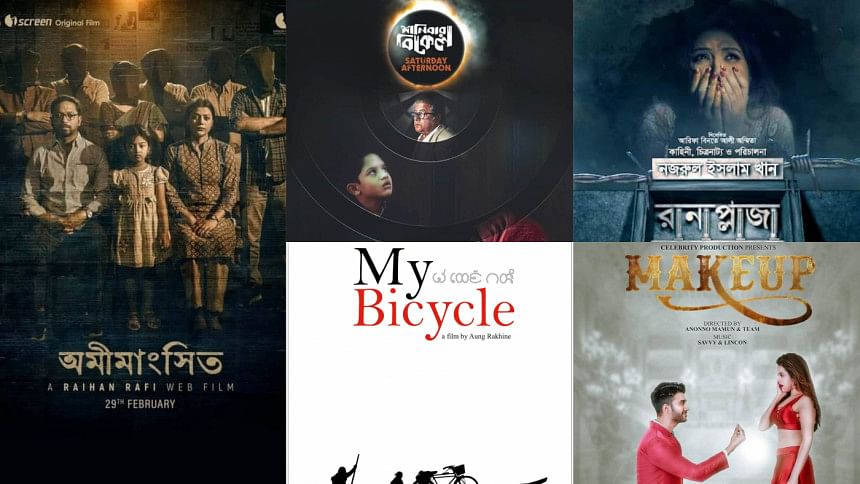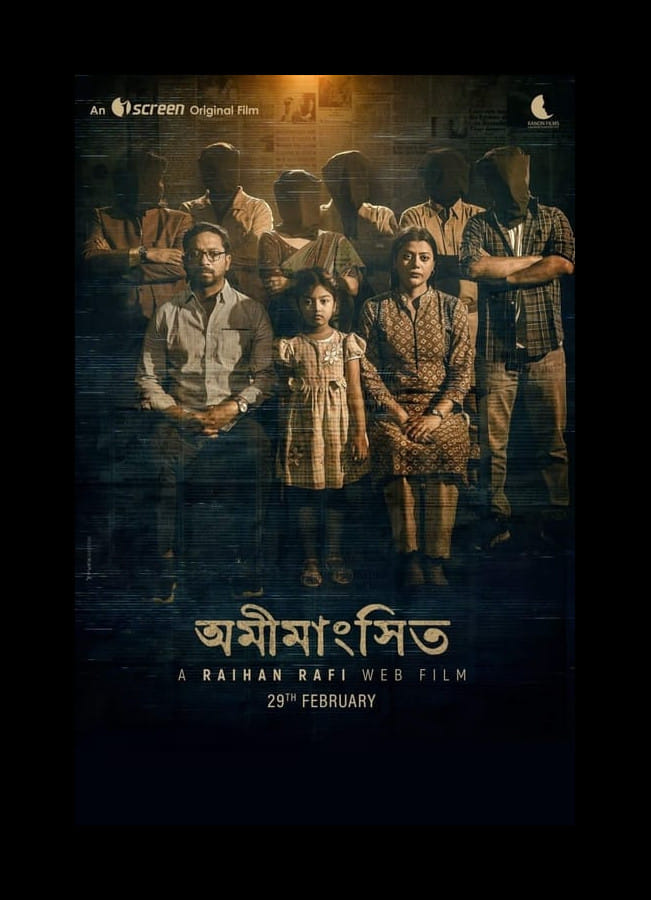ICT adviser Nahid Islam promises renerewed hope for banned films

Numerous films faced bans during the previous administration, with some caught up in legal disputes while others were shelved for unexplained reasons. Producers voiced their frustration over films stalled in the censor board's approval process, but their protests yielded no resolution. For years, filmmakers have called for the abolition of the censor board in favour of a system of censor certification.
Recently, the Information and Broadcasting Adviser of the Interim Government, Nahid Islam, has offered promising news regarding long-delayed films.
For over a decade, the Censor Board has been a major obstacle for filmmakers. Producers constantly worry about what content will be allowed on screen and to what extent. The biggest fear looms at the end of production—what if the film gets stuck in the approval process? Such concerns are not unfounded. During the previous administration, numerous films were halted, some due to legal challenges, while others were inexplicably blocked.
Several films have remained entangled in the censor board's web for years, including Mostofa Sarwar Farooki's "Saturday Afternoon", Enamul Karim Nirjhar's "Nomuna", Nazrul Islam Khan's "Rana Plaza", Anonno Mamun's "Makeup", Aung Rakhine's "Maw Theng Gaari" (My Bicycle), and Sajjad Khan's "Kath Golap", among others.
Despite the passage of time, these filmmakers are still waiting for their censor certificates, with some having lost all hope. The reach of censorship has even extended to web content. For instance, Raihan Rafi's web film "Omimangshito", which had a scheduled release date, was barred from reaching audiences due to its focus on the murder of journalist couple Sagar-Runi.

Filmmakers have long voiced their frustration over the stagnation of their films within the censor board, but their efforts have brought no change. For years, producers have demanded the abolition of the censor board in favour of a certification system, asserting that censorship hinders artistic freedom. Despite their repeated calls, hope for reform seemed distant. However, following the fall of the Awami League government on August 5, the film industry has found renewed optimism. Many believe that the era of strict censorship may finally end, opening the door to a new era in cinema. Among those embracing this renewed hope is Nazrul Islam, the director of "Rana Plaza", a film that has been blocked by censors for a decade. He recently announced plans to resubmit "Rana Plaza" to the Censor Board, hoping for a renewed opportunity.
Nahid Islam, the Information and Broadcasting Adviser of the Interim Government, recently delivered promising news regarding long-delayed films. During a press conference yesterday, he announced that movies stalled in the censor board will be re-evaluated, and the board itself will undergo restructuring. The newly-formed adviser stated, "We are aware that many films are currently held up by the censors. These movies deserve a second look, and if they comply with existing regulations, they should be granted the opportunity to be released as soon as possible."
The adviser further addressed the potential dissolution of the censor board. He remarked, "Committees like the Censor Board and Jury Board need to be restructured as soon as possible. We will make decisions shortly. We will also consider the demand to eliminate the censor board and make a decision based on a thoughtful evaluation." Nahid Islam further emphasised, "In general, there is a lot of work to be done in the film industry. The younger generation has high expectations for cinema, but those expectations are not being met. We need to align our efforts with the aspirations of the youth to revitalise the industry."
Nahid Islam believes that the need for reform extends beyond the film industry to include Bangladesh Television (BTV). He stated, "When you look at BTV, it feels like it's stuck in the eighties or nineties. It primarily appeals to people from that era, and we're not even sure if anyone else is tuning in. There's also the issue of political bias. Moreover, BTV's content doesn't seem relevant to today's generation. From this perspective, I believe it's essential to modernise all our institutions to meet current expectations."
Following the Information and Broadcasting Adviser's announcement, director Raihan Rafi released the teaser for his new web film "Omimangshito". He took to Facebook to express his determination, writing, "People can't be deceived anymore, the film is on its way, and it will be released soon."

 For all latest news, follow The Daily Star's Google News channel.
For all latest news, follow The Daily Star's Google News channel. 









Comments